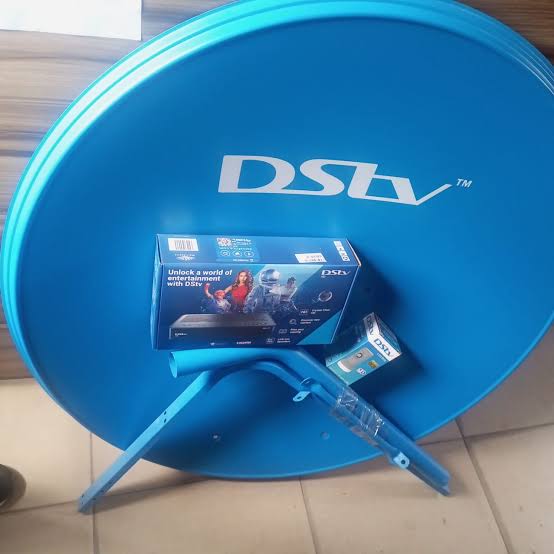MultiChoice, the parent company of DStv, is actively exploring the introduction of a sports-only package to address a significant decline in its subscriber base across African markets. Over the past two years, the company has lost approximately 1.4 million subscribers in Nigeria alone, driven by economic challenges such as soaring inflation, rising energy costs, and increased living expenses. This proposed package, centered on DStv’s popular SuperSport channels, aims to offer customers a more affordable and flexible option tailored to sports enthusiasts, potentially reversing the trend of cancellations.
The subscriber drop has been particularly pronounced in Nigeria, where economic pressures have forced many households to prioritize essential spending over entertainment subscriptions. MultiChoice’s annual results for the fiscal year ending March 2025 reported a 9% decline in active subscribers across its African operations, with Nigeria accounting for the bulk of the losses. CEO Calvo Mawela highlighted that many customers subscribe to premium packages primarily for sports content, often canceling during off-seasons when major events like the English Premier League are not airing, underscoring the need for a more targeted offering.
The sports-only package is still in the conceptual phase, with MultiChoice evaluating whether it will be a standalone subscription or a bolt-on option for existing customers. Mawela emphasized that the company is analyzing consumer behavior to determine the feasibility of unbundling SuperSport from its broader entertainment packages, which include channels like M-Net and Showmax. While no timeline or pricing details have been confirmed, the initiative is expected to gain clarity in the 2025 financial year as MultiChoice refines its strategy to align with market demands.
Economic factors are not the sole driver of MultiChoice’s challenges; competition from global streaming giants like Netflix, Amazon Prime Video, and local platforms has intensified pressure on traditional pay-TV providers. These services offer on-demand content at lower price points, appealing to cost-conscious consumers. In response, MultiChoice is exploring ways to enhance flexibility, such as allowing customers to pay only for sports content during specific seasons or events, potentially reducing churn rates.
The potential acquisition of MultiChoice by French media conglomerate Canal+ adds another layer of complexity to the sports-only package initiative. Canal+, which increased its stake in MultiChoice to 45.2% in 2024, is reportedly considering a full buyout, though regulatory hurdles in South Africa remain. Maxime Saada, CEO of Canal+, has expressed reservations about sports-only packages, citing their limited profitability in other markets, which could influence the final structure of DStv’s offering if the acquisition proceeds.
MultiChoice’s SuperSport channels are a cornerstone of its appeal, broadcasting high-demand content such as Premier League football, UEFA Champions League matches, and major rugby and cricket events. The proposed package would likely focus on these flagship offerings, potentially including live sports, highlights, and analysis shows, but exclude non-sports content like movies or series. This targeted approach could attract sports fans who find the current premium packages, such as DStv Premium, too costly or bloated with irrelevant channels.
Customer feedback has played a significant role in shaping this strategy, with MultiChoice noting a growing demand for customizable subscription options. Surveys conducted by the company indicate that a significant portion of its subscriber base values sports content above other genres, particularly in markets like Nigeria and South Africa, where football enjoys a massive following. By offering a sports-only package, MultiChoice aims to retain these customers while appealing to new ones who may have been priced out of its existing plans.
The broader African pay-TV market is undergoing a transformation, with economic volatility and currency depreciation exacerbating affordability concerns. In Nigeria, for instance, the naira’s devaluation has increased the cost of imported content, forcing MultiChoice to raise subscription fees multiple times in recent years. These price hikes have driven some customers to cheaper alternatives or piracy, further eroding DStv’s market share and necessitating innovative solutions like the sports-only package.
MultiChoice is also investing in its digital platforms to complement its traditional satellite offerings, with Showmax, its streaming service, undergoing a relaunch in 2024 to better compete with global players. The sports-only package could potentially integrate with Showmax, allowing subscribers to stream live sports on mobile devices or smart TVs, catering to younger, tech-savvy audiences. However, challenges such as unreliable internet connectivity in parts of Africa may limit the scalability of this approach.
Regulatory and competitive dynamics will also shape the rollout of the sports-only package. South Africa’s broadcasting regulations, which prioritize local content and public access to major sporting events, could influence the package’s structure and pricing. Additionally, MultiChoice faces competition from StarSat and other regional players, which may attempt to undercut DStv’s offerings with their own sports-focused packages.
Despite these challenges, MultiChoice remains optimistic about the potential of a sports-only package to stabilize its subscriber base. The company’s leadership has acknowledged the need to adapt to changing consumer preferences and economic realities, with Mawela stating that flexibility and affordability are critical to DStv’s long-term sustainability. As discussions progress, MultiChoice is expected to conduct market trials to gauge customer interest and refine the package’s features.




